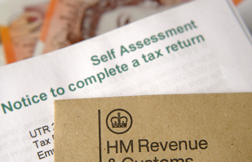A limited company is the most common form of business structure. It’s a legal structure whereby the shareholder is protected from any liabilities the company may incur. Meaning it’s a separate entity for income tax and legal purposes from its shareholder(s) and director(s).
Limited companies in the UK are governed by the rules and regulations contained in the Companies Act 2006, and all company registration and records are managed by Companies House.
If you’re looking to set up your own limited company, or are simply looking for a new limited company accountancy service, then PayStream can help.
Why should I set up a Limited Company?
A limited company allows you to pay yourself a mixture of salary and dividends, however if applicable you may need to consider IR35. You can also claim tax relief on allowable business expenses.
Incorporating your business is a big step and we recommend you discuss your circumstances with your accountant, like PayStream, to ensure it’s the right next step for your business.
Once decided, it’s relatively easy and straight forward to set up your own limited company, the tricky and time consuming part of running your own limited company is understanding your director responsibilities, the administrative aspects, as well as understanding how to complete and file your statutory returns accurately and on time to avoid any penalties. With the support and advice from our dedicated team here at PayStream, you'll get the best advice that is tailored to your business.








